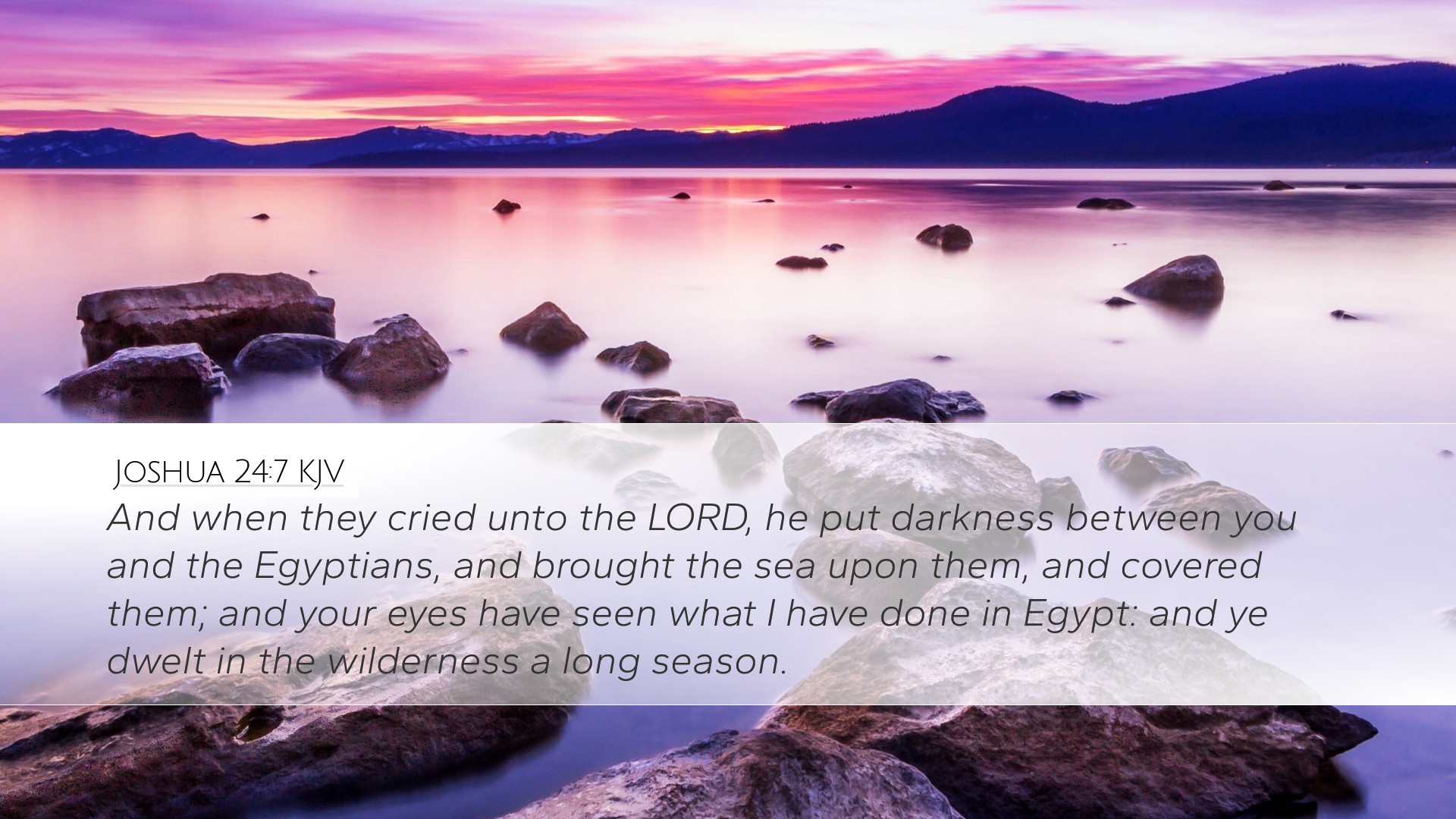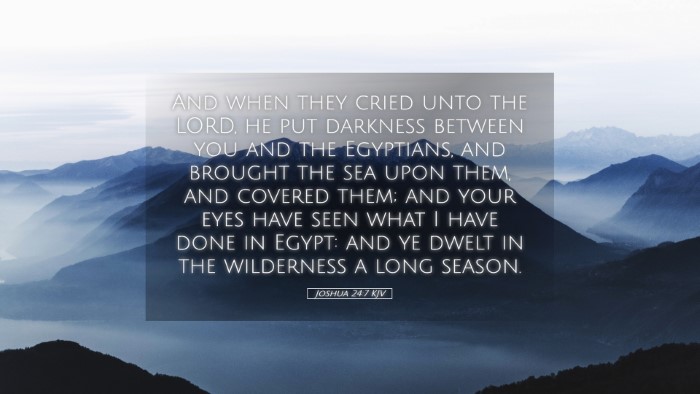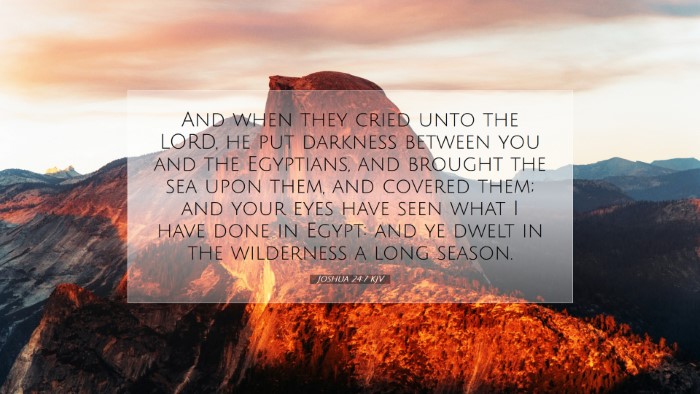Commentary on Joshua 24:7
Verse: "And when they cried unto the Lord, he put darkness between you and the Egyptians, and brought the sea upon them, and covered them; and your eyes have seen what I have done in Egypt: and ye dwelt in the wilderness a long season."
Introduction
The passage in Joshua 24:7 narrates a significant moment in Israel's history, highlighting God's deliverance and the miraculous events during the Exodus from Egypt. This commentary aims to delve deep into the theological and practical implications of this verse, synthesizing insights from esteemed public domain commentaries to enhance understanding for pastors, students, theologians, and Bible scholars.
The Context of Joshua 24:7
Joshua 24 records the final address of Joshua to the Israelites before his death. He recounts the history of their people, emphasizing God's faithfulness and the need for loyalty to Him. This retrospective view serves as a profound reminder of the experiences that shaped their identity as God’s chosen people.
Historical Setting
This verse reflects on the pivotal moments of the Exodus, specifically God's intervention against the Egyptians. The historical context is vital; understanding the Israelite bondage in Egypt and their subsequent liberation is essential for grasping the weight of Joshua's words.
Analysis of Key Themes
The Crying Out to the Lord
The phrase "when they cried unto the Lord" emphasizes the desperation of the Israelites. Here, we see a recurrent theme of lament and reliance on God during times of need. As noted by Matthew Henry, this is an appeal to the faithful covenant-keeping nature of God, who hears the cries of His people.
Divine Intervention
Darkness and Deliverance: The mention of God putting "darkness between you and the Egyptians" signifies His protective action. Albert Barnes elaborates on this, indicating that God not only separated the Israelites from their oppressors physically but also spiritually. The darkness symbolizes the separation He establishes between His people and their enemies.
Parting of the Sea: The miraculous crossing of the Red Sea is a central event in the Jewish tradition and a demonstration of God’s power. Adam Clarke points out that this act was not merely to provide an escape but to showcase God’s sovereignty over creation, illustrating that He is capable of bending nature to fulfill His purposes.
The Collective Memory of Israel
The phrase "your eyes have seen what I have done" indicates a collective memory that Joshua encourages the Israelites to recall. This memory serves as a touchstone for their faith and obedience. Commentators like Matthew Henry emphasize that witnessing God's deeds is crucial for grounding their belief and encouraging future generations to trust in Him.
Theological Implications
God’s Faithfulness
This passage asserts fundamental theological truths regarding God’s unwavering faithfulness. His intervention in their past is a testament to His character, providing a basis for trust in His future promises. The acknowledgment of past deliverance is central to cultivating a culture of faith and dedication within the community.
Human Agency and Divine Sovereignty
Furthermore, there lies a profound interplay between human agency and divine sovereignty. The act of crying out to God reflects human initiative in seeking divine help, while the ensuing miracles underscore God's omnipotence. This theme appeals to scholars like Albert Barnes, who argues that God often waits for His people to invoke His aid before manifesting His power.
Practical Applications
For Pastoral Ministry
This verse and its commentary provide valuable insights for pastoral care. It emphasizes the importance of encouraging congregations to cry out to God in their times of distress, reaffirming that He is attentive to their struggles. Pastors can use this narrative to teach the importance of remembering God’s past faithfulness as a source of hope.
For Personal Reflection
Individuals are called to reflect on their own past experiences of God's deliverance. Just as the Israelites needed to remember their history, believers today should consider how God has acted in their lives, cultivating gratitude and trust in His continuous guidance and provision.
For Theological Studies
The theological concepts derived from this verse warrant further exploration in academic settings. The interplay of divine sovereignty and human response, the nature of God’s interventions, and the understanding of communal memory are all rich areas for research and discussion.
Conclusion
Joshua 24:7 stands as a powerful reminder of God's faithfulness to His people, urging them to remember His deliverance, to call upon Him in times of distress, and to live in obedience. As leaders and scholars reflect on this verse, they should consider how it informs their understanding of God's nature and encourages a vibrant faith within the community of believers.


